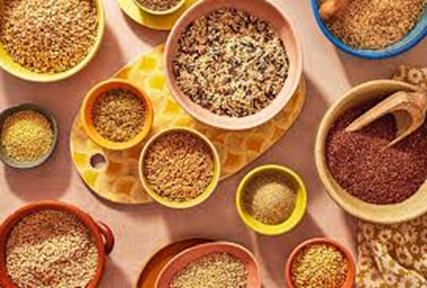Diabetes: Beyond Sugar - Understanding the Causes and Management
Diabetes is a complex condition
influenced by various factors beyond just sugar consumption. Understanding
these factors and how to manage them is crucial for preventing and managing
diabetes effectively.
Key
Factors Contributing to Diabetes
Genetic
Factors
Family history plays a significant
role in the development of diabetes. Individuals with a parent or sibling with
diabetes have a higher risk of developing the condition. Certain genetic
markers also increase susceptibility to type 2 diabetes.
Obesity
Excess body weight, particularly
visceral fat around the lower abdomen, is a major risk factor for type 2
diabetes. Fat cells release inflammatory markers that contribute to insulin
resistance, making weight management crucial for diabetes prevention.
Physical
Inactivity
A sedentary lifestyle significantly
contributes to type 2 diabetes. Regular physical exercise helps maintain
healthy blood sugar levels by increasing insulin sensitivity and promoting
glucose uptake by muscles.
Prevention
and Management Strategies
Lifestyle
Modifications
- Balanced Diet
- Eating a diet rich in whole
foods, including fruits, vegetables, whole grains, lean proteins, and
healthy fats, is essential.
- Controlling the intake of
processed and sugary foods helps manage blood sugar levels.
- Regular Exercise
- Engaging in regular physical
activity combined with muscle-strengthening exercises enhances insulin
sensitivity and helps control blood sugar levels.
- Weight Management
- Maintaining a healthy weight
significantly reduces the risk of developing type 2 diabetes.
Medical
Interventions
- Medications
- Various medications like
metformin, insulin, GLP-1 receptor agonists, and SGLT2 inhibitors can be
effective in managing diabetes.
- Regular Monitoring
- Frequent blood sugar
monitoring helps track the effectiveness of management strategies and
allows for timely adjustments.
Conclusion
While sugar consumption is a
significant factor in the development of type 2 diabetes, it is not the only
cause. Diabetes is a multifaceted disease influenced by genetic, lifestyle, and
environmental factors. Adopting a healthy lifestyle and utilizing medical
interventions when necessary can help prevent and manage diabetes effectively.
Mr. S.K. Sethi is founder of RIA
Insurance Brokers and specializes in health insurance products for families as
well as corporates. For diabetic patients, having comprehensive healthinsurance is
crucial. It covers the
cost of medications, regular check-ups, and specialist visits, ensuring
effective disease management. Good insurance also provides access to necessary
resources like nutritional counseling, helping patients maintain their health
and reduce complications.
Blog of S.K. Sethi, Founder of RIA Insurance Brokers, you may connect him for any query at his email id: sksethi@riainsurance.com





















